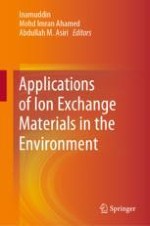
2019 | OriginalPaper | Chapter
1. Green Approach: Microbes for Removal of Dyes and Metals via Ion Binding
Author : Adeline Su Yien Ting
Published in: Applications of Ion Exchange Materials in the Environment
Publisher: Springer International Publishing
Activate our intelligent search to find suitable subject content or patents.
Select sections of text to find matching patents with Artificial Intelligence. powered by
Select sections of text to find additional relevant content using AI-assisted search. powered by